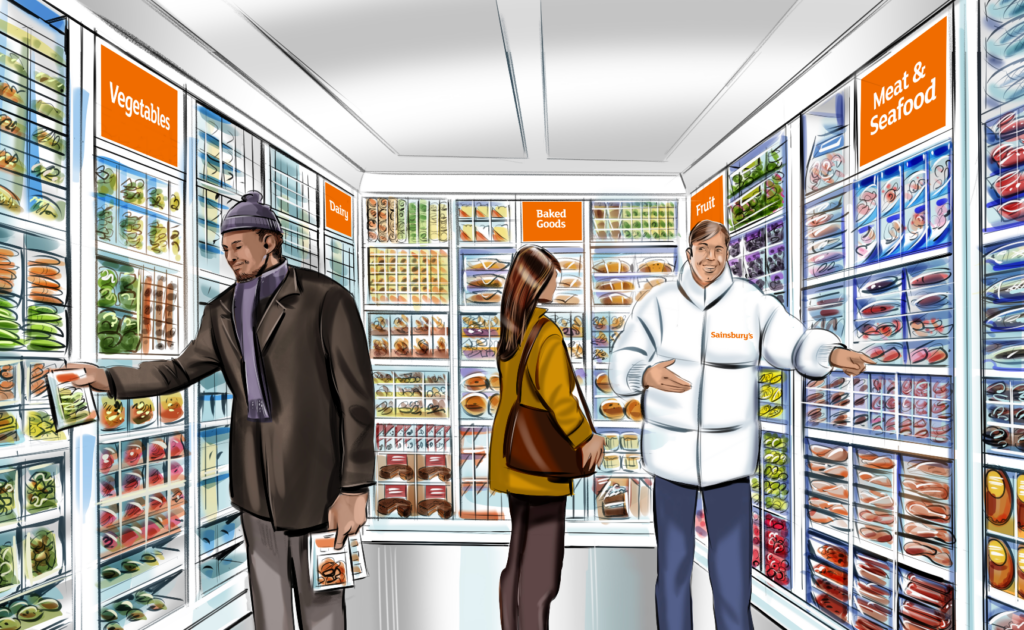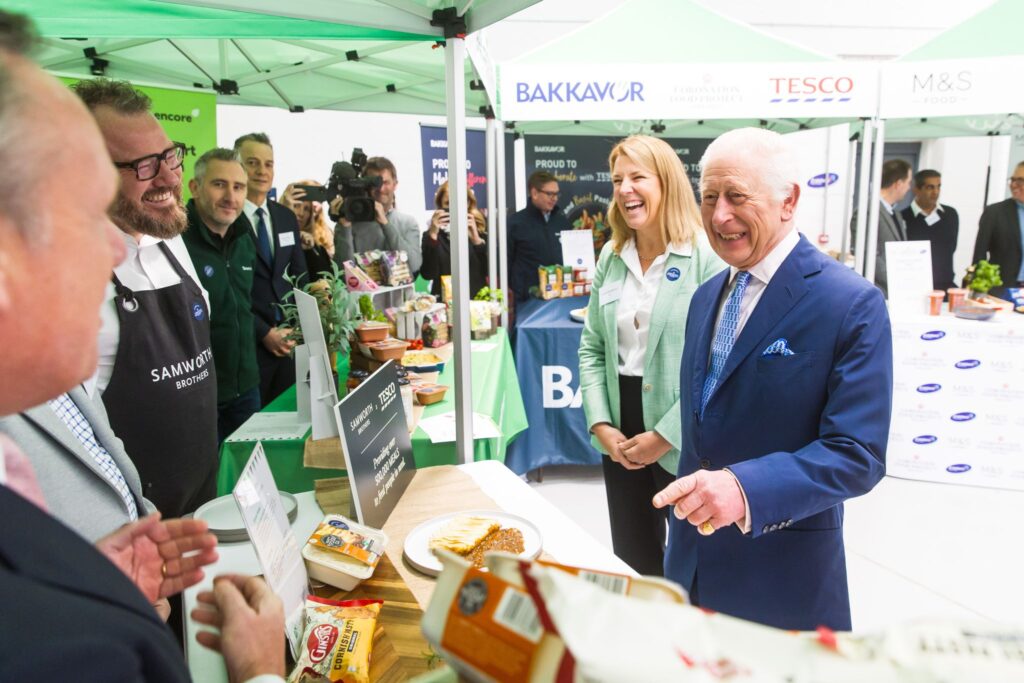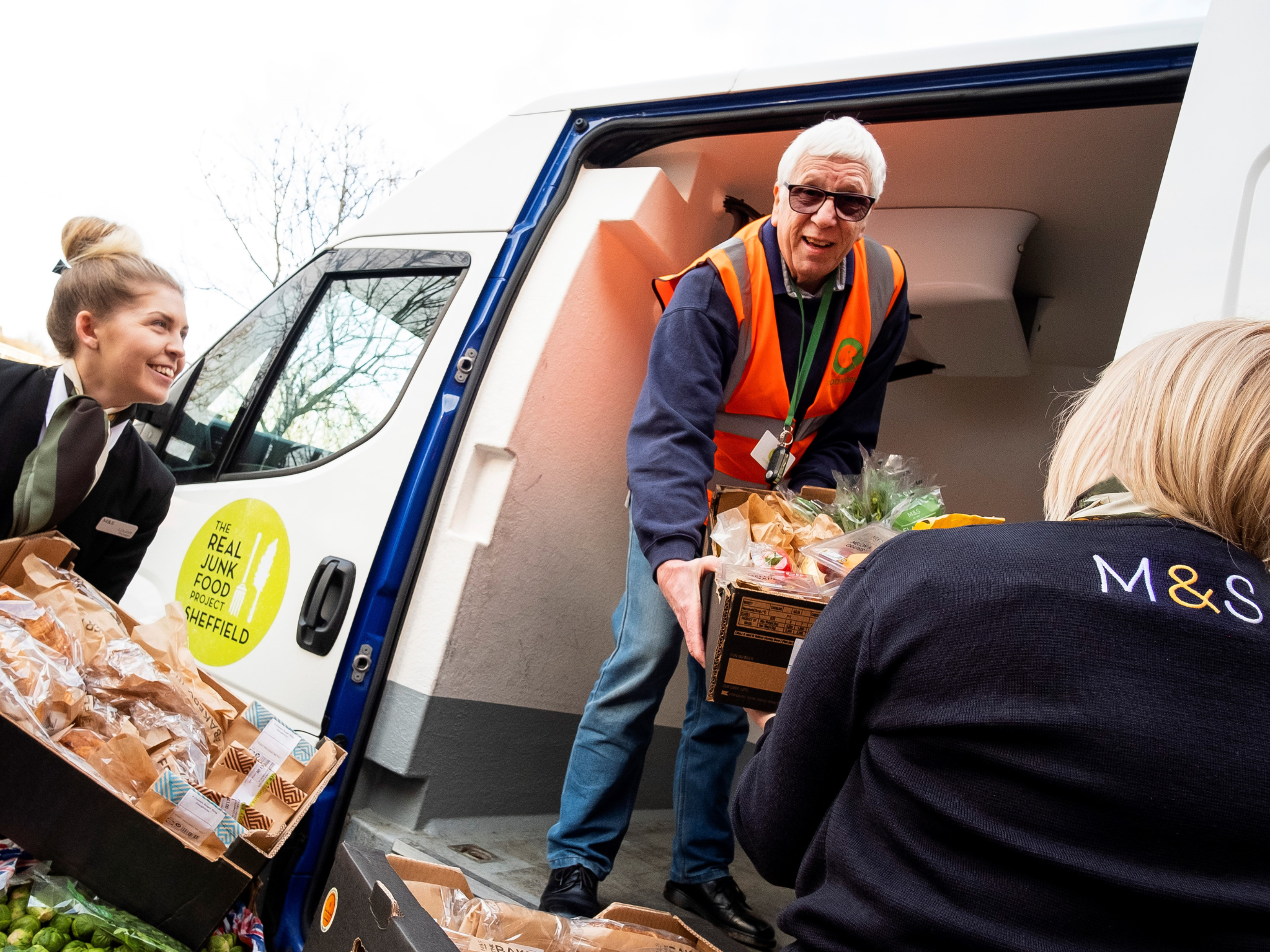4 Mins Read
In a bid to boost food security and cut waste, some of the UK’s biggest supermarkets and charities have joined forces to form a surplus food distribution body.
Tesco, Sainsbury’s and M&S are among 15 organisations that have come together to tackle food waste and hunger in the UK through a new redistribution initiative.
Called Alliance Food Sourcing, the retailers are working with manufacturers, logistics providers, and food charities to identify thousands of tonnes of surplus food and distribute it to families and individuals in need. It was launched on the one-year anniversary of King Charles’s Coronation Food Project, through which companies decided to collaborate on food waste reduction and redistribution.
According to environmental non-profit WRAP, a quarter of the UK’s food goes to waste every year, 60% of which comes from households and 25% from the manufacturing, hospitality, and retail sectors. It’s responsible for 4.5% of the country’s greenhouse gas emissions. At the same time, around 11% of Brits go hungry annually.
Leaders from the companies involved have launched an appeal in trade publication the Grocer for other businesses to put aside competitive differences and become involved in the effort.
How companies will save millions of tonnes of food waste

Alliance Food Sourcing sits within the Institute of Grocery Distribution, a food industry research charity, and will oversee new ways of redistributing the 4.5 million tonnes of surplus food found in the UK supply chain every year.
Through the Coronation Food Project, companies and charities like Grencore, FareShare and the Felix Project have found ways to reclaim ingredients packaging and products that otherwise end up in landfills. The project has used supplier clubs to distribute surplus potatoes, carrots and onions to charities and protein (including plant-based meat) to food hubs.
Surplus flour and sugar have been processed into biscuits, while ‘imperfect’ vegetables have been put into curries. And excess volumes of pasta sauces have been diverted into large bags for catering charities and community cafes. Ingredients have also been rescued in instances where packaging is defective.
Alliance Food Sourcing will use similar methods to redistribute food, especially focusing on farms and factories. These include using surplus raw ingredients and partially processed and prepared food, as well as underweight, broken or damaged products that can be redistributed. Ingredients donated by multiple companies, meanwhile, will go into making soup.
“This isn’t just some PR or a charter – this is actual companies from the world’s best food system investing for a change,” noted Alex Freudmann, managing director of M&S Food.
“It’s a pioneering approach to using surplus capacity, surplus food, and lots of goodwill far up the supply chain into manufacturing and farming – to create tens of millions of meals for those who need them.”
Food waste reduction ramps up in the UK

The Coronation Food Project has already rescued 940 tonnes of additional surplus food – equivalent to 2.24 million meal portions – with 1,900 tonnes more donated. In its first year, £715,000 has been circulated in community food grants, and £15M raised to open 10 food hubs (two of which have been inaugurated).
“There are millions of tonnes of food waste out there, but the easy and less expensive sources are over subsribed and reducing as we get more efficient as an industry,” said George Wright, the outgoing CEO of Farshare. “So now we need to go after the more difficult-to-extract sources, upstream in the supply chain.”
The UK government has committed to cutting food waste in half by 2030, in line with the UN’s Sustainable Development Goals, although the country’s hasn’t rolled out a plan to detail how it will achieve this target. But the Labour government has highlighted a zero-waste economy as one of its five climate priorities, and with food waste hurting the economy to the tune of £22B annually, action against waste needs accelerating.
In 2018, WRAP and IGD initiated the UK Food Waste Reduction Roadmap to halve waste by 2030. And in a recent report, they underscored the importance of going beyond current food waste targets to deliver the UK’s net-zero goal for 2050. The two organisations are working with industry members to develop a food waste reduction strategy, which will include mandatory food waste reporting and address date labelling and pre-packaging of fresh produce.
Retailers are a major driving force behind the fight against food waste. Tesco, Sainsbury’s and M&S were all co-signees of a letter sent to Steve Reed, the UK’s environment secretary, calling for mandatory food waste disclosure in the industry. In 2021, businesses that measured and reported data collectively saved 251,000 tonnes of food waste, worth £365M. And as of last year, more than 300 food businesses have committed to the strategy so far.
Meanwhile, Tesco’s deal with food waste app Olio has helped it cut 45% of waste since 2016, Sainsbury’s redistributed 58% more surplus food last year than in 2022, and M&S has prevented 9,000 tonnes of food from going to waste since 2015, diverting nearly 32 million meals for those in need.



